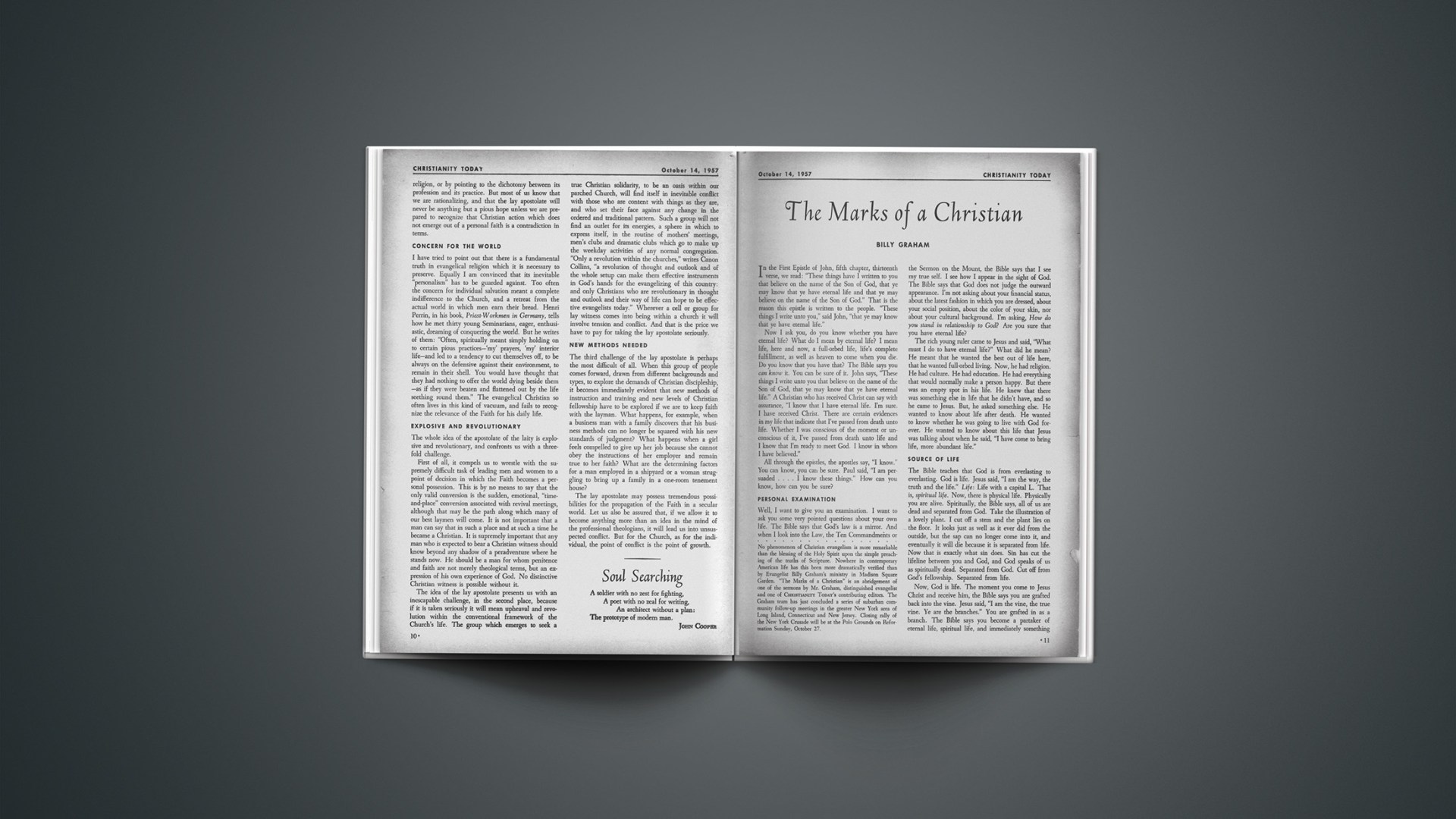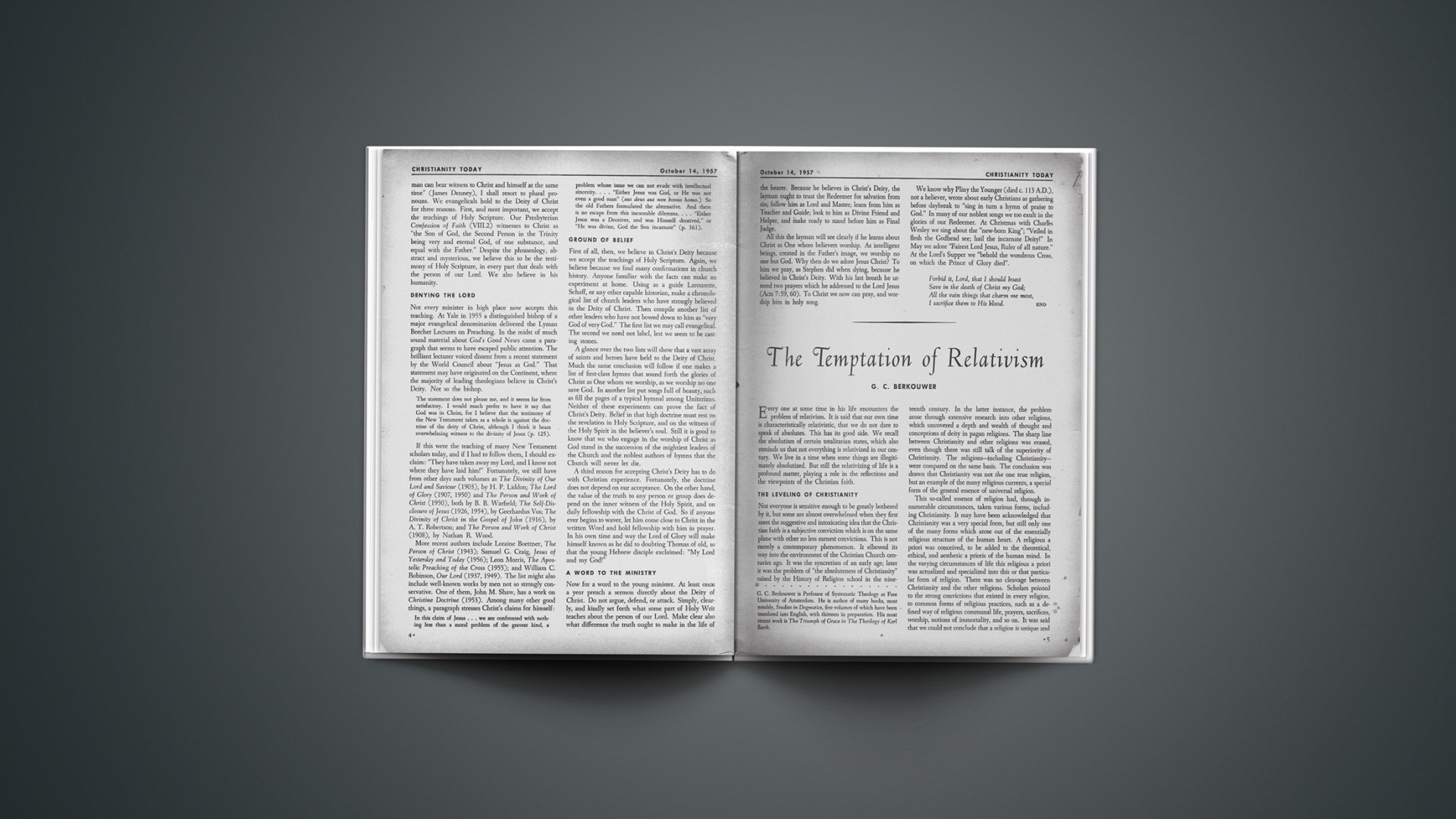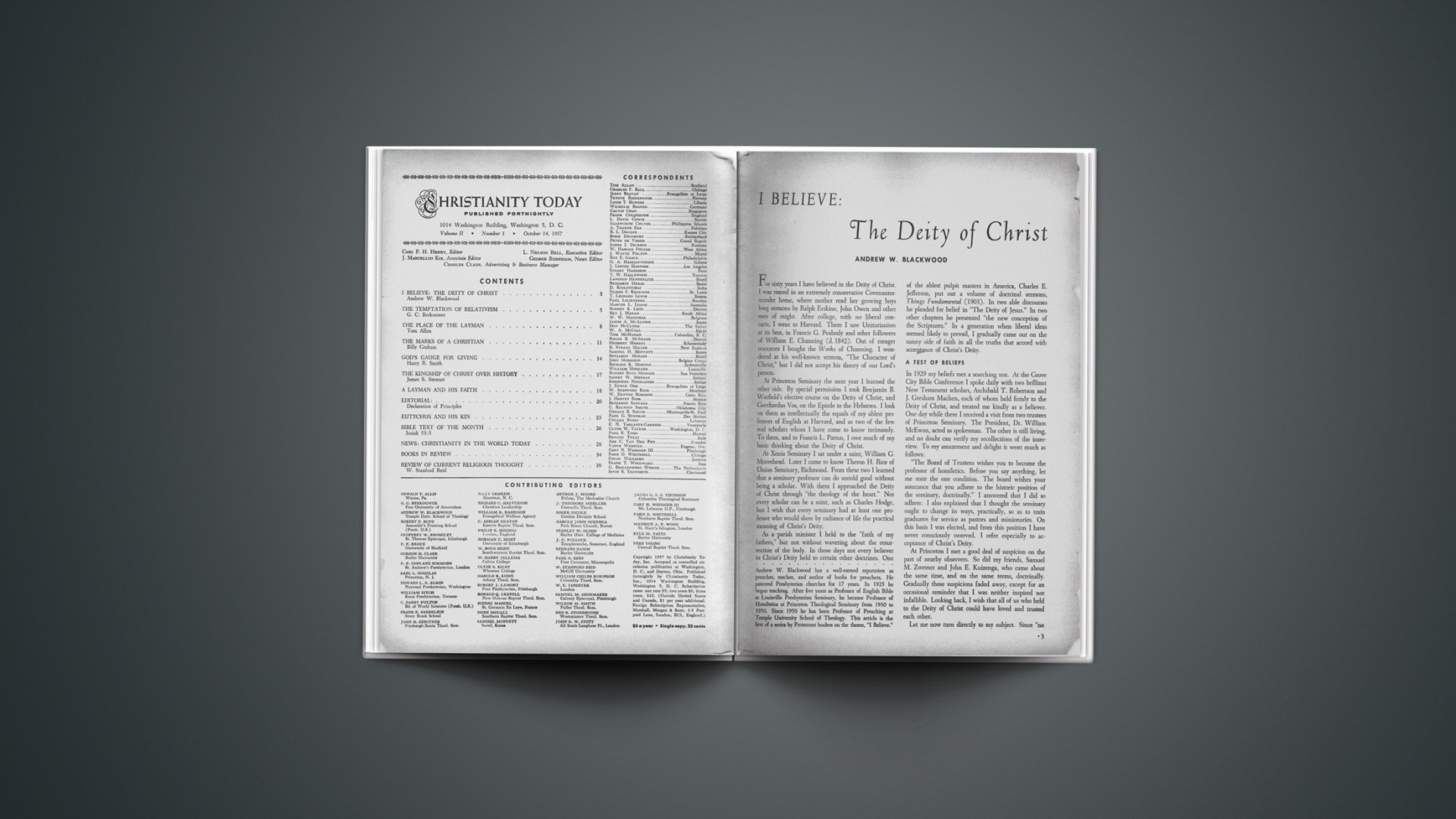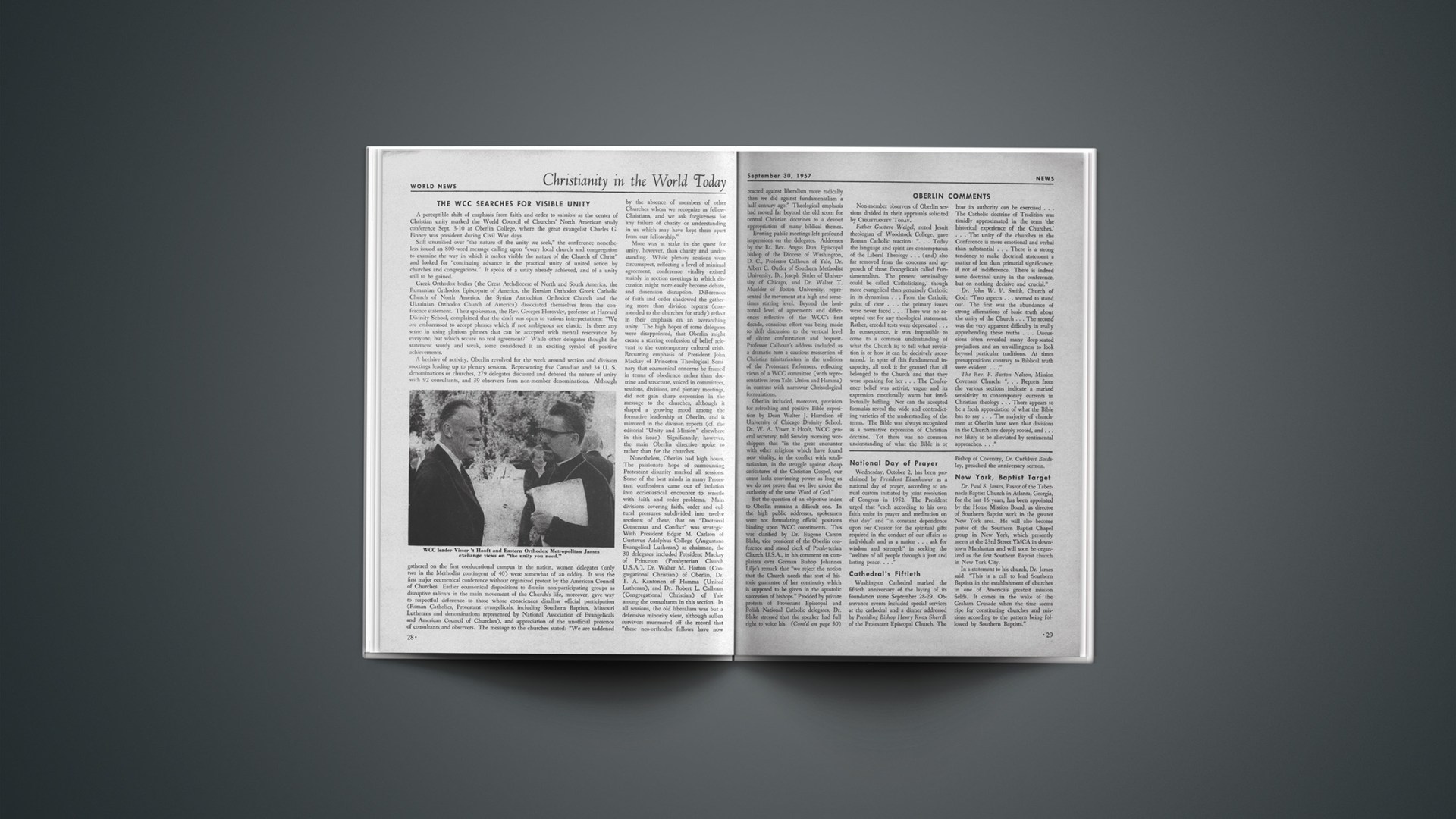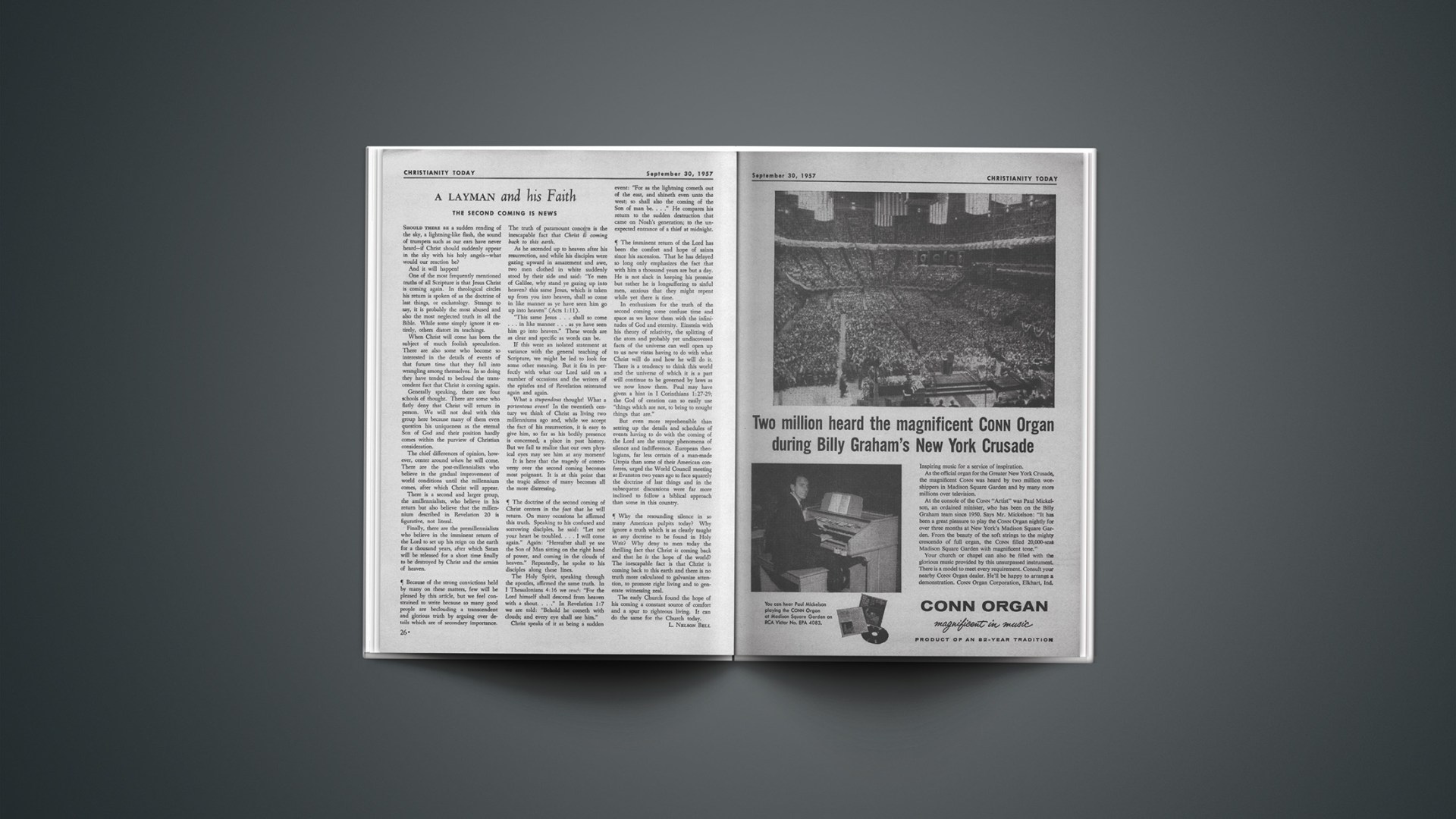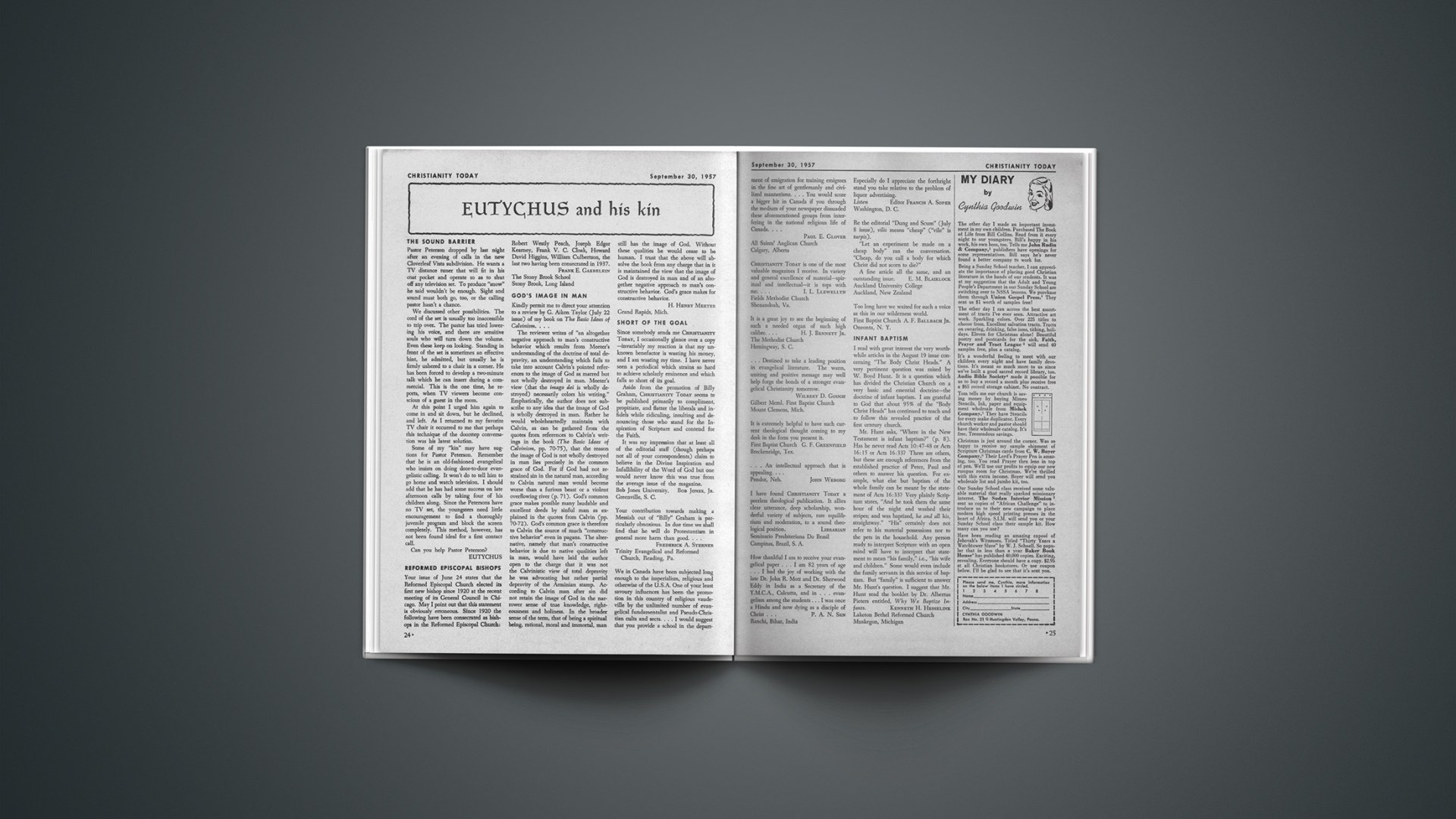The whole future of the missionary enterprise is linked with, and depends on a right understanding of, the question of the relation of Jesus Christ to the historical process. Our missionary attitude will be largely conditioned by the answers we give to such questions as these: What did Jesus mean by the Kingdom of God, and what is its place in the context of secular history? Is Jesus King only of the Church, or is he King of the world as well? Is his Kingship real now, or potential in the future? Is there a new missionary urgency in the dangers of our contemporary situation? What is the ultimate goal of missions? Is it victory for Christ within the historical process, or is it victory beyond the consummation when history has ceased to be? Is it the gradual spread of the Gospel until the nations are at the feet of Jesus and the whole earth is Christianized? Or is it an apocalyptic act of God shattering time, abolishing history and bringing in eternity?
Lordship Of Christ
I suggest that the one satisfactory approach to these immensely important questions is along the line of the New Testament proclamation of the Lordship of Christ. All cramped and narrow notions of missionary motivation—all the planning and the strategy which are aimed simply at the rescuing of individual souls out of the clutches of the historical process and the corruption of the world—are far behind the insight of the New Testament Church when it fashioned its first creed in two words, like two sudden thrilling notes of a trumpet: Kyrios Jesus, Jesus is Lord.
It is upon God’s mighty acts at the Cross and the Resurrection that Christ’s Kingship stands for ever. When Pilate wrote upon the Cross “This is the King,” he had unconsciously expressed the divine determinate decree. “He reigns from the tree.” This is the Gospel. It is not that we are sent out into the world to “make Christ King.” How could it be that, when God has made him King already and given him the Name which is above every name? It is not that our missionary task is to cooperate with Jesus in seeking to establish the Kingdom, as though we were to prepare the way for its coming or work for its inauguration at some future day. How could it be that, when from every page of the Gospels the words and works of Jesus cry aloud that in him the Kingdom has broken through and is now in the midst? It may indeed be a hidden Kingdom, with a King incognito, a mystery veiled from the eyes of sinful men and therefore unacknowledged.
Concealed as yet this honour lies,
By this dark world unknown,—
A world that knew not when He came,
Even God’s eternal Son.
Nevertheless, he has taken hold upon history, and he is history’s Lord.
Whenever we speak of an historical incarnation and of an objective atonement, we are asserting that God’s mighty act in Christ has changed the human scene decisively and for ever even for those who do not believe on him and who refuse to recognize his claim. The very earth which God has given to the sons of men has been different since the days when it was trodden by the feet of the one true Son of Man; and every human life, whether Christian or not, is affected by the cosmic battle fought out to a finish at Calvary between Jesus and the powers of darkness. In this sense he is King, not only of the Church, but of the universe itself.
Command And Motive
Now there is all the difference in the world between going out on mission with the motive of helping Christ to become King, and going out because the King has sent you. If the dominical command were a summons to the Church to conduct a world-wide propaganda for Christ’s enthronement, to dedicate its maximum resources to a herculean effort to bring his Kingdom in upon earth, it would indeed be a paralyzing hopeless task. Sometimes the Church has in fact thought of its mission in those terms—and then the exhilaration has vanished from its spirit and the light has gone out of its face. Even today it is a not unfamiliar presentation of the missionary challenge. But basically it is quite alien to the New Testament. This was not the theology of missions on which the apostles launched out in that great age which saw the works of the Lord and his wonders in the deep. This would have been a frail makeshift raft, unfit for such a precarious voyage. What carried them through was the sure Word of God that the kingly rule of heaven had broken right into history in Christ; that this Jesus was the royal dominion of God incarnate; and that the Lordship of Christ extended not merely to a group of disciples but to the nations of the earth, not to a few religious people but to all mankind, not to the Church alone but to the universe. “Why do the heathen rage, and the people imagine a vain thing? I have set my king upon my holy hill of Zion. Ask of me, and I shall give thee the uttermost parts of the earth for thy possession.”
If the missionaries proclaimed this truth with passionate conviction, it was because not flesh and blood but God himself had revealed it to them in the death and resurrection of his Son. And today it is no rhetorical wishful thinking but hard concrete fact we are expressing when we say:
His Kingdom cannot fail;
He rules o’er earth and heaven;
The keys of death and hell
Are to our Jesus given.
Now here we encounter one of the fundamental principles of a missionary theology. It is this—that behind the imperative lies an indicative. The Church must act, because God has acted already. The missionary cries, “Necessity is laid upon me: woe is me if I preach not the Gospel,” because of certain historic unique unrepeatable events which have given him a Gospel to preach. The love of Christ constrains its ambassadors to suffer in history, because by that love history is already redeemed. The command “Go ye into all the world” has behind it the urge and drive of that stupendous affirmation, “All power has been given to me in heaven and earth.” The dynamic of the Church’s unaccomplished task is the accomplished deed of God. Underneath the urgent imperative there rests, firm as a rock, the eternal indicative.
James S. Stewart is Professor of New Testament Language, Literature and Theology in the University of Edinburgh, and is one of Scotland’s most distinguished preachers. This article is an abridgment of the chapter “Christ the King” from his recent book, Thine Is the Kingdom, used by permission of Charles Scribner’s Sons.




